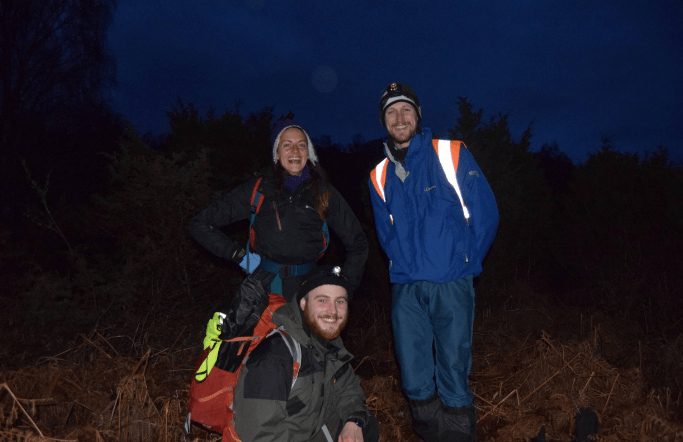New conservation programme, Project Wolf, in which volunteers replicate the natural disturbance effects of Scotland’s extinct predators – has been launched in the Highlands near Loch Ness by Trees for Life.
Volunteers operating in teams of three ‘wolves’, regularly walking through the ancient woodlands during the night and at dusk and dawn, creating disturbance that will keep deer on the move. The aim is that by walking through Dundreggan’s woodlands at unpredictable times, the volunteers mimic the effect of wolves in keeping deer on their toes and less likely to spend time leisurely eating seedlings and young trees, encourage new vegetation to flourish
“Grazing pressure on young trees by too many deer, today undisturbed by natural predators is the major threat to Scotland’s native forests. This is starkly apparent in the surviving Caledonian Forest, where many remnants consist only of old and dying trees because young trees cannot survive the relentless browsing,” said Alan Watson Featherstone, Trees for Life’s Founder.
The initiative is taking place during spring and early summer, when – without hunting activity or the presence of large predators – there is nothing to prevent deer from feasting on newly emerging seedlings and the new season’s growth on any young trees.
In return for their sleepless nights, the volunteer ‘wolves’ are already encountering memorable wildlife experiences, as they are out and about when most people are asleep but when many species are active. Dundreggan is home to many nocturnal creatures including badgers, pine martens, foxes, owls and bats.
For more information, see www.treesforlife.org.uk<http://www.treesforlife.org.uk








